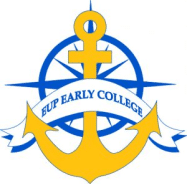There is no tuition cost to parents or students.
The Eastern Upper Peninsula Early College Program is a partnership between LSSU and the constituent school districts of the Eastern Upper Peninsula Intermediate School District. This five-year high school program allows a student to earn a high school diploma and college credits leading up to an associate degree from LSSU or a Michigan Early/Middle College Association (MEMCA) technical certificate.

Students should contact their high school guidance counselor for an application.
Students will take a combination of high school and college classes during their junior and senior years. These classes will give students the opportunity to complete the graduation requirements of the Michigan Merit Curriculum while at the same time earning up to 62 credits or an associate degree. Most students start the Early College Program following the Associate degree in General Studies from LSSU. However, the Director of Early College Programs and an LSSU faculty advisor will work with each student over the course of the program to fit each student’s academic goals.
Students officially start the three-year Early College program during the first semester of their junior year. Students cannot join the program after count day, as they must be coded as Early College at the high school.
Classes will be held at the various high schools and career centers, online, and on LSSU’s campus.
Your official high school diploma will be awarded after successfully completing your last math class during the third year of the program.
Your participation in various senior year activities is up to the discretion of your home school district.
Tuition will be paid through the state student funding allowance. The student’s family may be responsible for additional costs, such as books, travel expenses, housing, food, etc. Check with your high school about them.
During the first two years of the Early College program, students will mainly take courses that fulfill the General Education and Michigan Transfer Agreement requirements. A list of these courses can be found here: http://webteam.lssu.edu/catalog/cmscatalog1819/gen-ed-requirements.php.
During the third year of the program (the 13th year), students will take courses full-time, most of which will be academic concentrations toward an associate degree or a future bachelor’s degree.
This program is designed to support students by providing services that will help them be successful in their college courses. Students will learn and develop strategies practiced by successful college students through the university seminar course. Additional support will be provided by high school counselors, LSSU academic advisors, faculty, and the Early College Coordinator. Early college students will also have access to LSSU tutors and mentors.
Students interested in applying must be a current high school sophomore attending a constituent high school of the Eastern Upper Peninsula Intermediate School District AND be enrolled in (and successfully complete) the one-credit Early College University Seminar course during the spring 2024 semester.
Students must be enrolled in a participating EUP high school to be eligible to apply for the Early College Program. All applicants will be required to complete an application. Admission to the Early College will be based upon several factors, some of which include:
Internationally Accredited
Fire Science Program
Student to Faculty
Ratio
Top Public Schools (Regional
Colleges – Midwest)
Student Organizations